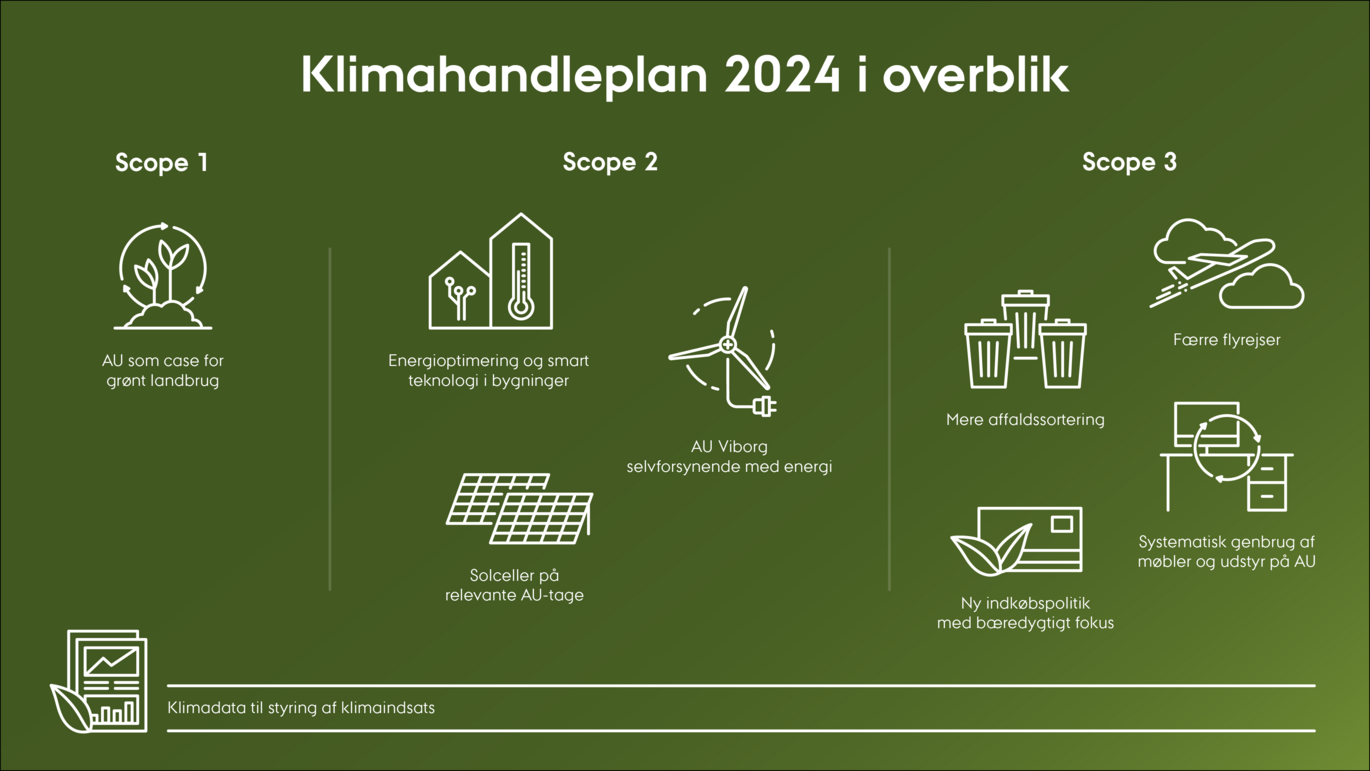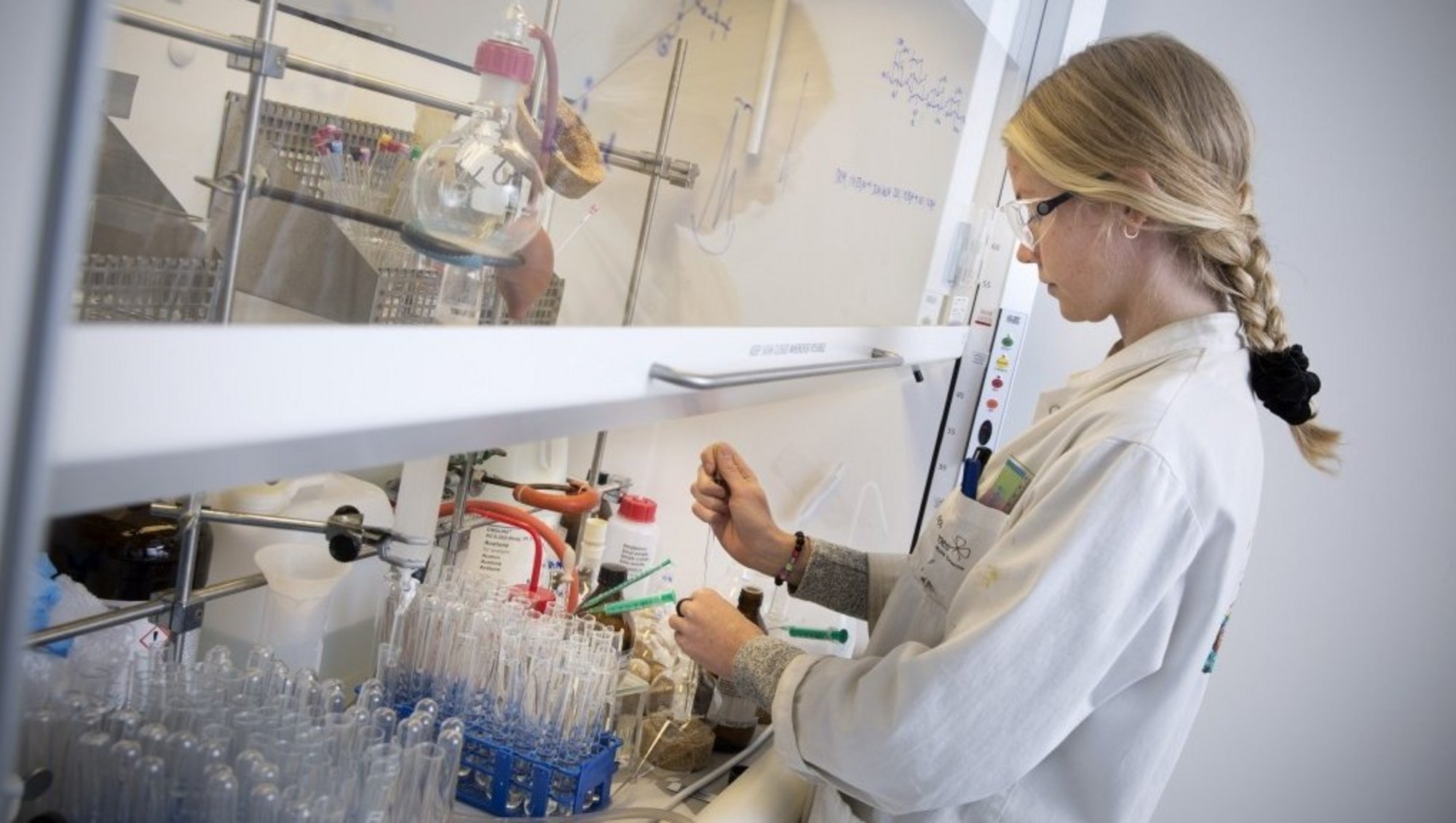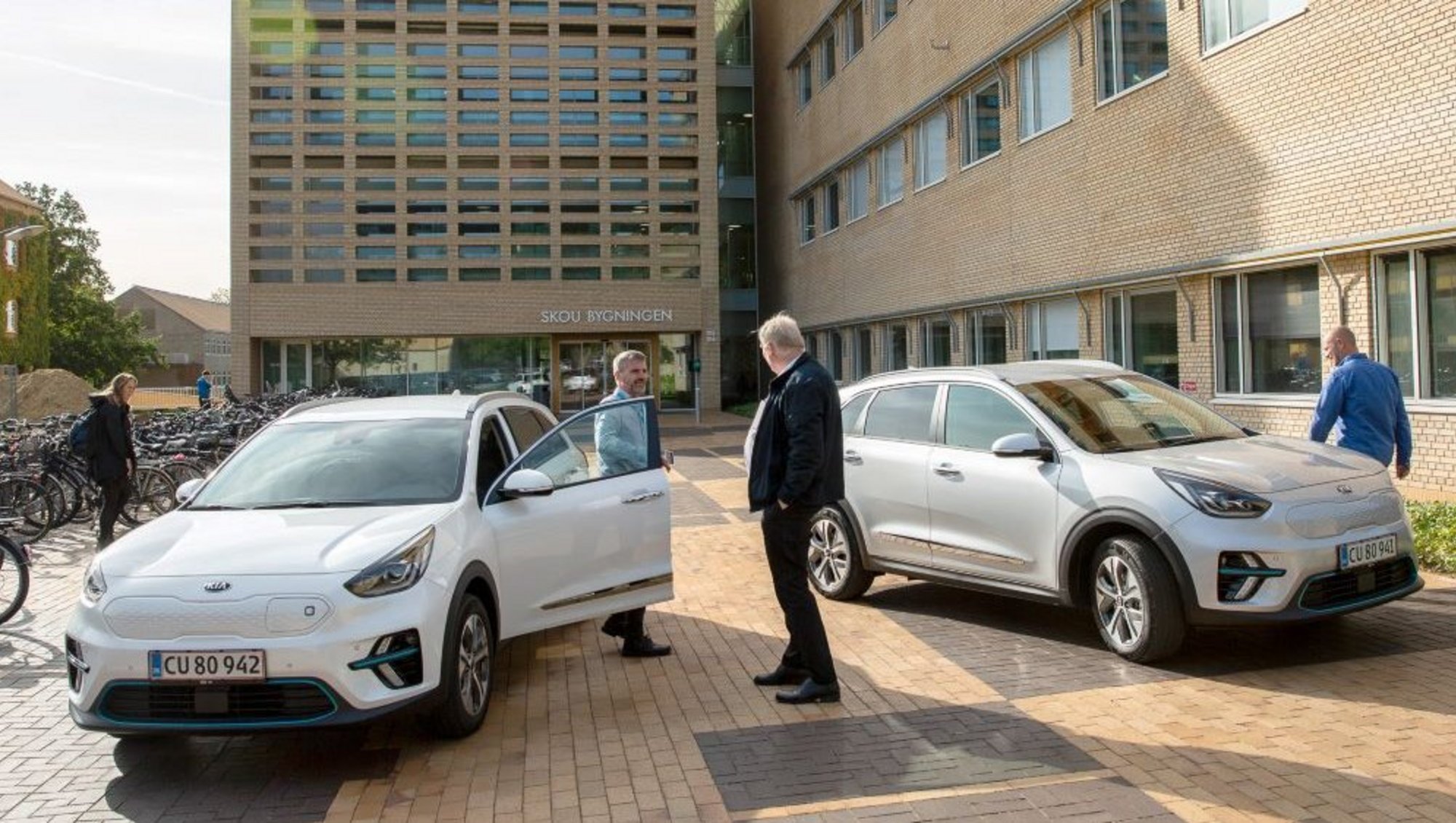Climate Action Plan 2024: “Business as usual won’t help us reduce our climate footprint”
Reduce air travel, continue to optimise energy use, and make sustainable purchases. With the 2024 climate action plan, AU is continuing its effort to reduce the university’s climate footprint, and we’ll all need to play our part. We’re running out of low-hanging fruit, says the university director.

AU’s climate action plan for 2024 has been developed in collaboration with the faculties and AU Finance and has been approved by the senior management team.
The Plan is built around nine focus areas (as depicted in the graphic above):
- AU as a case study for green agriculture
- Energy optimisation and smart technology in AU buildings
- AU Viborg: energy self-sufficiency
- Solar cells on selected AU roofs
- Less air travel
- More waste sorting
- Systematic reuse of furniture and equipment
- New purchasing policy with a focus on sustainability
- Data-driven appraoch to climate action
Students and staff can expect AU’s climate-friendly initiatives to affect more of their daily lives on campus. This is how University Director Kristian Thorn describes the 2024 climate action plan, which sets necessarily ambitious targets and introduces new climate initiatives at AU.
One area that offers potential for further CO2 savings is air travel. Until now, the university has been hampered by a lack of flight data, but with a new measurement tool on the way, it will soon be easier for faculties and departments to set local reduction targets and track progress.
Climate will also come to play a larger role in the university’s purchasing policy. This is expected to lead to significant CO2 savings in the long term. 2024 will also be the year when a new waste sorting system is rolled out across AU. This will require staff and students to sort their waste properly, so that less of it ends up in the general waste bin.
“We must balance our considerations for the climate against our core tasks. Our most important contribution to the green transition is our research and the academic approach to sustainability that we pass onto our students. At the same time, as a large organisation and an important force in society, we have a considerable responsibility to reduce our own climate footprint. And this is where we are running out of low-hanging fruit. We must accept that we can’t just carry on with business as usual,” says Kristian Thorn.
Growth puts pressure on climate targets
AU’s goal is to reduce its CO2 emissions by 35 per cent in 2025 compared with 2018. The Covid-19 situation led to a significant drop for a short period, but now the university’s activities are back at full throttle, and AU is achieving considerable success in attracting external research funding. It is very positive that our research environments are growing, but this also puts pressure on our climate targets, explains Kristian Thorn.
“Many of the initiatives we have launched to reduce CO2 steer us in the right direction, but we need to do even more. It’s a challenge we share with most other businesses and organisations and it applies to all sections of society.”
This is why the 2024 climate action plan sets new ambitious targets for the university’s climate footprint. In addition to air travel, procurement and waste sorting, AU will continue to focus on energy optimisation and will endeavour to source more of its energy from renewable sources such as solar power, wind power and biogas. It will also consider its use of batteries and the long-term potential of power-to-X. One of the university’s targets is to make AU Viborg energy self-sufficient.
Ongoing climate efforts continue
At AU, the climate is playing an ever increasing role in the university’s projects and daily tasks – from electric company cars and vegetarian catering to energy optimisation and the sustainable renovation of buildings. See some of the climate initiatives that are already in full swing.


